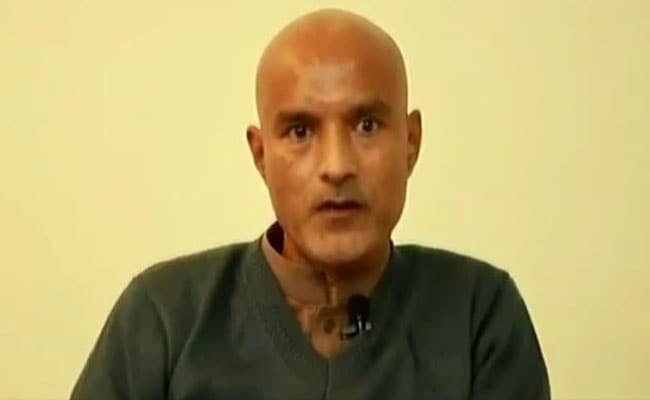
India's appeal against the death sentence handed to former Navy officer Kulbhushan Jadhav by Pakistan will be decided at 6.30 pm IST by the International Court of Justice in The Hague in the Netherlands. Mr Jadhav, 49, had been arrested on charges of espionage and terrorism. The sentence was delivered after what India labelled a "farcical trial". India has claimed his confession was extracted under duress and has asked the court to order Pakistan to annul the sentence and allow consular access.
Here is a look at how the Khulbhushan Jadhav case unfolded:
On March 3, 2016, Kulbhushan Jadhav, a former naval officer, was arrested by Pakistan agencies on charges of spying. Pakistan claimed the arrest took place on its soil - in Balochistan - but India insisted he was illegally detained while in Iran on business.
India was formally notified of the "arrest" on March 25. Acting in accordance with international diplomatic norms, the centre sought consular access but was denied. The Indian government would go on to make 16 such requests over the next year.
On April 10, 2017, after a trial conducted in military court (Pakistan also claimed he was an active Indian Navy officer with the rank of Commander), Kulbhushan Jadhav was found guilty of espionage and sabotage and sentenced to death.
On May 8, India approached the International Court of Justice (ICJ), accusing Pakistan of "egregious violations of the Vienna Convention on Consular Relations".
In a strongly-worded statement to the court, India denied Pakistan claims that Kulbhushan Jadhav was a "spy" and also contended that basic protocols - such as informing Mr Jadhav of his rights - were not followed.
On May 18, the ICJ asked Pakistan to "take all measures at its disposal" to ensure a stay of execution pending its final judgment. The court set December 13 as a deadline for both sides to complete making their respective cases.
In September, India dismissed, as an "imaginary lie", Pakistan's claim that they had received a proposal to swap Kulbhushan Jadhav for a terrorist who carried out the horrific 2014 Peshawar school attack.
On December 25, after repeatedly denying consular access, Pakistan allowed Mr Jadhav's mother and wife to visit. India accused Pakistan of harassing both during the meeting in Islamabad.
In July 2018 India and Pakistan both filed a second round of written statements, with Pakistan replying to India's claims relating to treatment of Mr Jadhav with respect to the Vienna Convention on Consular Relations 1963.
The ICJ held a four-day hearing in February 2019, which coincided with heightened tensions between India and Pakistan over the death of 40 soldiers in the Pulwama terror attack. On July 4, the court announced it would deliver its verdict on July 17.

